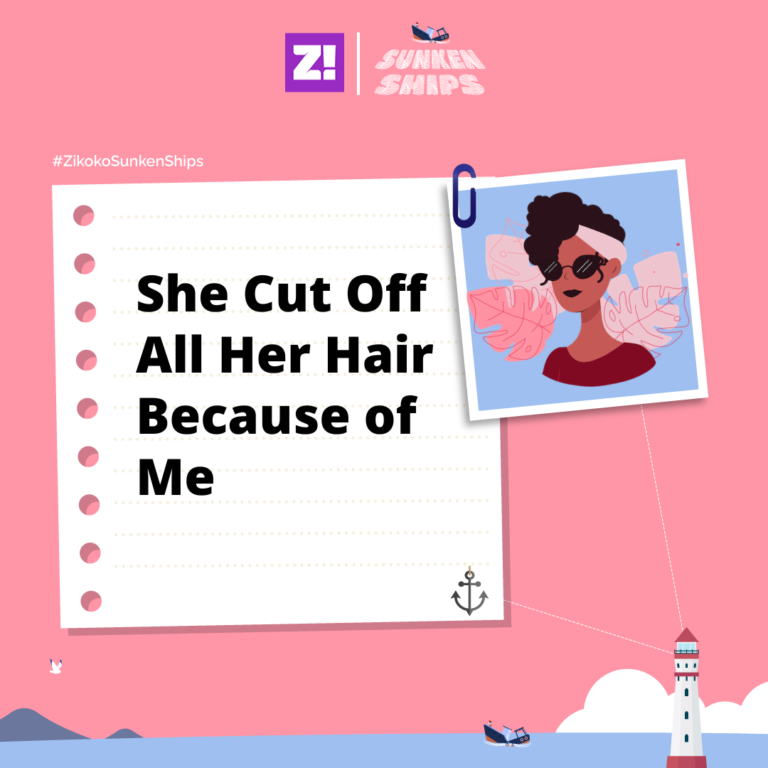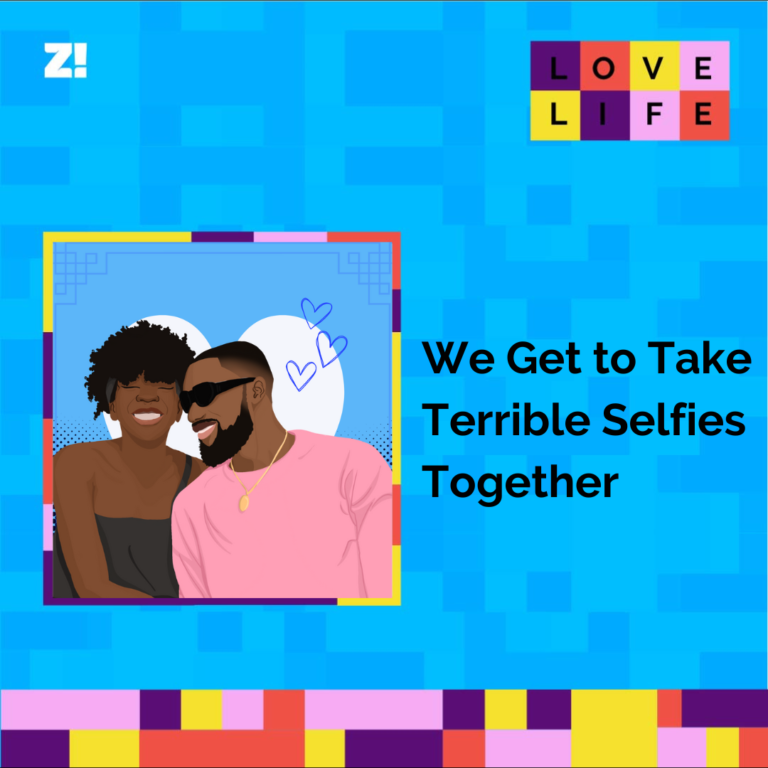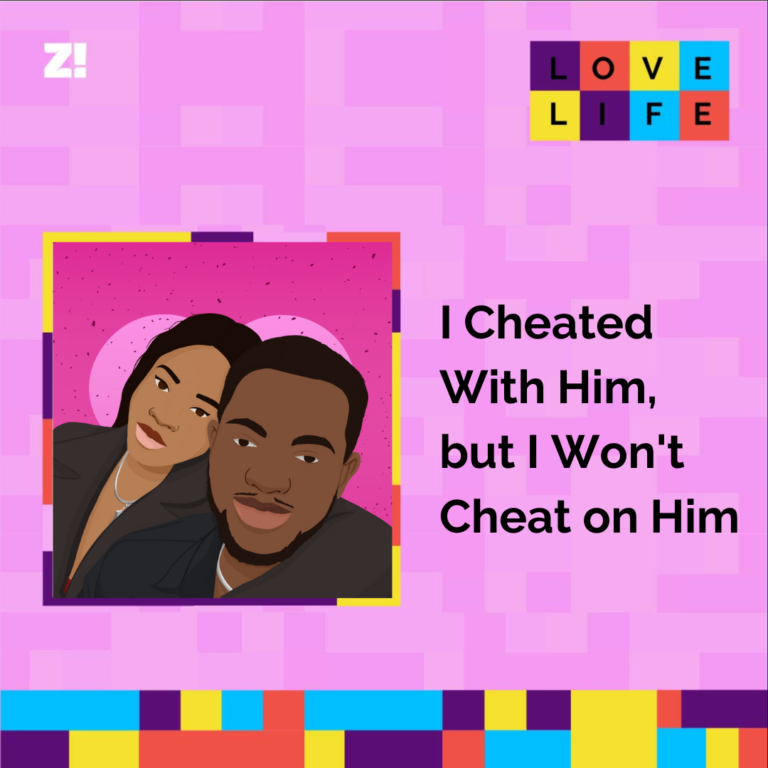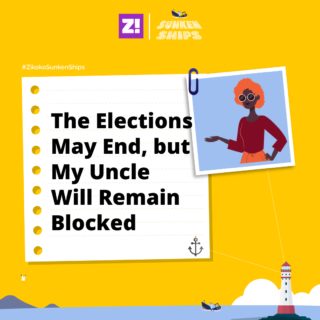The Elevator is a limited Zikoko series that details the growth of young successful Nigerian women. We tell their stories every Tuesday by 12 p.m.
After dropping out of the University of Benin where she studied biochemistry, 29-year-old Kiki Mordi went on to become a radio presenter, TV producer, presenter, writer and lead investigator in the Emmy nominated documentary, Sex for Grades.
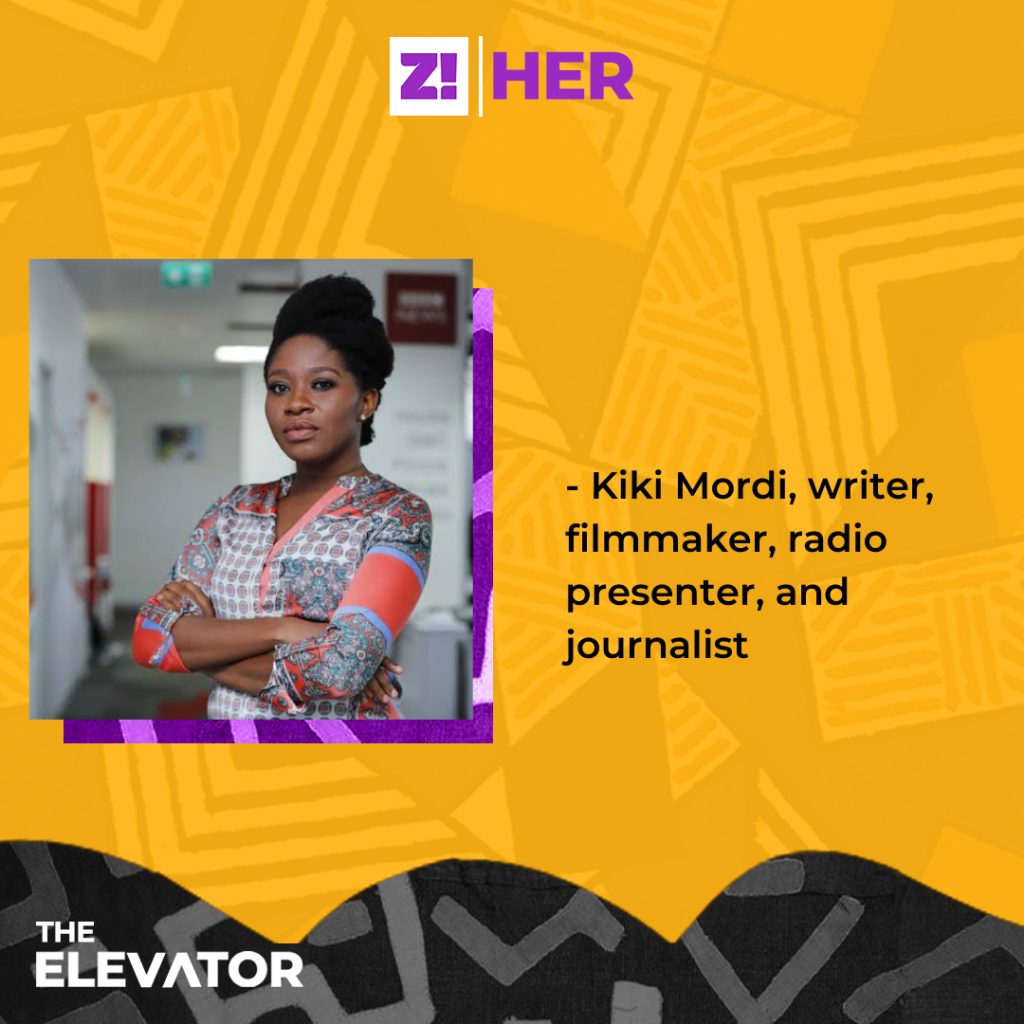
What did you want to be when you were younger?
A doctor. I like doctors. My eldest sister got sick a lot, so we were always at the hospital. The doctors I saw, with their white coats, had some kind of charisma. They looked really important, and I wanted to be as important.
Did you study medicine at uni then?
No, actually. I studied biochemistry. In Nigeria, what you want is secondary to what is available to you and that’s what happened. People told me not to go for medicine because it would be hard to get admission, and at the time I was applying, I was also second-guessing my choice for studying medicine.
Many things started to make studying medicine look bad. As I heard stories of medical students who committed suicide in Uniben, medicine started to look less and less attractive. I also didn’t consider myself mentally strong enough to handle more challenges — I had just lost my dad. I decided to go for the easier option and for something smaller. I was going to study pharmacy, but I ended up with biochemistry.
I know you wanted something smaller, but why pharmacy?
I felt it was a saner aspect of medicine. You still get to help people but you don’t have to deal with the blood or the horror. Honestly, by the time I was in secondary school, I didn’t think I wanted to be a doctor anymore. I only went into the sciences because I had good grades and the guidance counsellor in school told me I would be good in the sciences.
What was university like?
It felt like I was just launched into this flowing river channel and I wasn’t paddling; I was just letting the river decide where I was going. When I started university, I met new demons that I had to battle: friendship, love, heartbreak, sexual harassment, misogyny, patriarchy, inequality.
It was substantial and occasional growing up. The misogyny was something that I could easily forget because I was protected by layers and layers of privilege, but out there in the real world, everything was thrown in my face. I learned you have to take a stand, find a place and own it. In the course of fighting various battles in my university, sexual harassment being one of the primary headlines, I dropped out and found myself a radio job.
How exactly?
I was really just bored. School was terrible to me, and I was depressed. I didn’t care about anything they wanted to tell me in class and my classroom reminded me of the lecturer that was making my semester a living nightmare. I was just floating around and looking for hobbies. One day I followed a friend to a reading audition. At the audition, the head of the programme said I had an interesting voice and told me to try out. I tried out and I got the job. It was not a paying job, but it was a job nonetheless. It came at a point where I wanted to leave Uniben and go back to Port Harcourt where I grew up, so since I had something new and exciting, I didn’t have to go back to Port Harcourt.
Did you like the job?
I fell in love with it. I would sleep in the studio, not because they were overworking me, but because I was overworking myself. I wanted to do more, and learn more. It was all so exciting to me. I’m so grateful because the team gave me a chance. I had spoken to people who worked before me and it took them a while to get their own live programs, but I think they just found me exciting, and were also affected by my excitement so they gave me my own live program.
What was it about?
It started out as a weekend program because I was not experienced enough to handle weekdays, but eventually, I started working weekday shows. Sometimes when people were out sick, they asked me to come up with a program or read the news and I would happily do it. I did that for about two years until a new radio station came into town and poached me. They offered me a salary of 100k. So I went from zero to 100k.
Wait, even with all the excitement and shows, they never paid you?
They didn’t. They kept promising that they would start me off with a salary of 50k, but it never happened. I wasn’t so bothered because I had started making money from voiceovers. Brands would come and specifically ask for my voice, and I was getting paid about 15k. Then I found out I could get paid 150k.
Wow. They were really cheating you.
When you’re new in the industry, nobody wants to tell you the real amount you can be paid for things. Even now, people still try to cheat me. It’s Nigeria, we’re all trying to maga each other.
Okay, so back to your new job
When the offer came, I didn’t even think twice before accepting it. It was a new space, and we were the ones going to grow the radio station. The ideas were going to be ours, and we would carve out what we wanted. I was sold. It was the most seamless team I had ever worked with. We were all really good at different things. They put us in one location where we were constantly bouncing ideas off of each other. Everything from the radio programs to the structure was things we created by ourselves. One of the things that made working here so great was that we were all the best. I had worked in offices where I was so obviously the best, and it felt very annoying. It was a very beautiful three years for me.
What did you talk about on the radio?
I could talk about whatever I wanted, and I found myself always talking about women’s issues. I had things I was passionate about like startups, tech, and women’s issues. Women’s issues, however, really stood out. It was one of the most listened to radio programs. It helped me to build a strong voice — people always wanted to call in and challenge me on my own radio program. They always wanted their voice to be louder than mine.
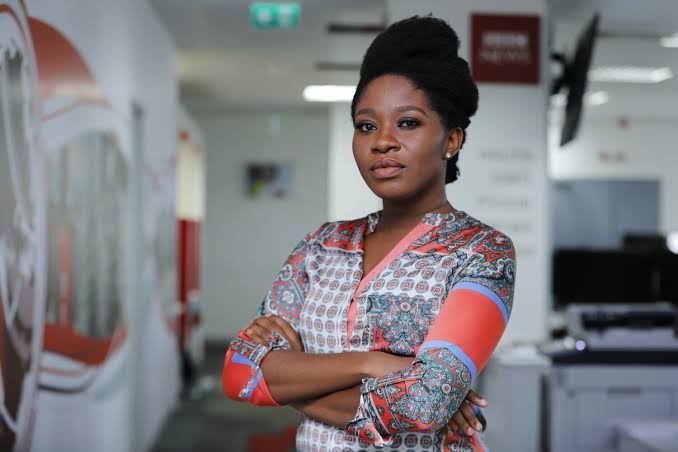
How did you not break down with all of that?
It could be because I was more excited than anything, or maybe the comfort I got from the fact that I had a lot of control. If I didn’t like what they were saying, I could control it. The control gave me safety.
What happened next?
I had to leave the station. I had outgrown the city. The only reason I came to Benin City was because of school. So, I took a leap of faith and decided to try new adventures. Plus, we no longer had competition. We were the best, we won all the awards and it got boring. I wasn’t even the only one that left. A lot of us from the pioneer set did too, and I think that is the downside of hiring very passionate, talented people. If you do not keep them excited all the time they’d leave you and run away. It was a great working condition, but I was getting bored.
How did you handle being bored with work?
Well, since I was promoted and was in charge a lot, I found myself jumping from one place to another, trying out different things. I tried to see if I could make money off of social media. I have been on social media for about 12 years, and to an extent, I started to know how it worked. When businesses approached for adverts for radio, I would talk to them about brand identity and social media. I worked with a graphic designer, and we were a really strong team. We helped some start-ups polish their business. I enjoyed working on that. I always knew it wasn’t only radio I could do. I was always a hustler.
Does that mean radio was not your first-ever job?
It wasn’t. I used to write. I did a bunch of writing gigs. I didn’t keep track of all the things I wrote for people. I just know I did research for newspapers, wrote jingles, and got paid chicken change. Sometimes 1k. I could have contributed to an article and when the article dropped, I wouldn’t even know. I wasn’t following up with it. Radio was my first actual thing. The writing was just money for snacks and transportation to the job that didn’t pay me. I also used to buy things from Lagos to sell in Benin when I was a student to get extra pocket money.
Why do you think never pursued writing as much as you did radio?
I didn’t pursue it at the time because it did not sound like something that was supposed to fetch money. I just thought it was something I did when I was bored, excited or heartbroken. It did not look like something that was a lucrative career path. However, I’m trying to write more. I had my first writing attributed to me last year. It’s like now that I started writing, more opportunities started coming. I truly envision that the bulk of this year will be split equally between writing and filmmaking. Less of radio and less of TV. I’ve always found myself jumping from one place to another.
Where did you go after leaving radio?
I found a radio station online called women’s radio, and one of the engineers that worked on our radio station was the one that drew my attention to it. He said I would be a perfect fit for the place. So I reached out to them and sent out an audition tape and in a couple of months, I moved to Lagos. It’s funny because they had just promoted me at the time I had to leave, and that made me almost not leave.
What was it like working in Lagos?
In Benin, the amount I paid for a three-bedroom apartment was what I paid for my one-bedroom apartment in Lagos. It was like I was starting afresh and finding my own voice, but this time it wasn’t by accident. I would leave my house around 4 am in the morning, and not return till around midnight. My neighbours used to gossip about me, about the kind of work I did.
Was the job worth all of the Lagos stress?
Yes, it was. I had a lot of doors opened up for me, and I have my boss to thank for that as well. She saw that it was not just a job for me, that it was more than that. It was special. So, when people needed someone for jobs, she would confidently recommend me. She just wanted me to get out there, open my wings, and fly. It was not coming with money at first, but it was part of the reason I was able to encounter organisations like United Nations, UN Women, and I started getting more and more visible in women’s spaces while building a network of women who saw me as a person that was relatable.
How do you mean by relatable?
We did a survey and found out that women do not trust the media, that they do not trust the press. Luckily, they saw me beyond being a journalist, beyond someone that just wanted to take their story and use it for clicks and views. They saw me as part of the community, and I was. I was a woman that went through the same things they went through. I would happily share my story, and talk about taboo topics. I decided to grow that network on Twitter. A lot of people used to dm me. Someone from the British High Commission once messaged me about a women’s focused event they thought I would be a great addition to, and I wondered how they saw me because I felt like I was drowning. Lagos has a way of making you feel like you are not doing enough. Anyway, my community on Twitter was very instrumental in how I moved from radio to investigative journalism.
How did that happen?
My first introduction to investigative journalism was by a person who DM’ed me on Twitter. Someone reached out to me and said they were looking for leads for the story they were doing on sexual harassment in Nigerian Universities. We set up a meeting and I met with some people from BBC Pidgin and BBC Africa, and I worked with them solely as a researcher for a couple of months, but along the line, they felt like I had more to offer than research. We trained for going undercover, and secret filming. For me, it was not just the journalism, it was sexual harassment that plunged me into this place, and it was like I was confronting my past. Everything I did was on autopilot. Unlike every other person at the time, some of who were full-time staff of the BBC or were freelancers, I had a day job.
How did you cope with two full-time jobs?
My job with the radio was failing because you cannot have two fully packed full-time jobs. So, I had to come clean with my boss at the radio station, and tell her the truth about the investigation. She was so proud of me and told me about her own sexual harassment story, and we cried and hugged and she gave me her blessing.
It was such a sensitive case and I could not give her details, but she just understood and made up excuses for me at work. I would get queried a million and one times. She tried to do what she could do, but she also did not want to seem like she had a favourite staff that was messing up and she kept covering for. She did this for almost a year. For the first part, I could manage, but then it got too much. I had to take time off and at a point, I asked them for a sabbatical, which was something they gave to senior staff which I wasn’t at the time, but my MD approved it. I was dealing with a lot of mental health issues and had months of depression that I was able to pull out from.
I was beginning to have panic attacks, and I also had a chronic eye disease that required lots of tests. My ophthalmologist wanted to monitor my eyes every day, and my office was basically in Ogun State while my doctor was in VGC. So, they gave me the time off on the basis of that. I had moved closer to the BBC office and was investigating sexual harassment while also taking care of my eyesight.
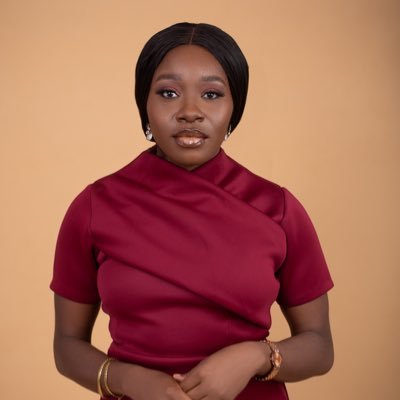
That sounds a lot for one person to be handling.
I mean in hindsight you can say it, but when you are in the middle of it all, all you can keep thinking about is how close you are to finish it, and how you just have to keep going.
What would you say was your motivation to keep going?
It was like a drug, or like an external force. It was no longer in my hands. There was a day I even said I was going to quit. I had nightmares and when I woke up, I just started working on the thing I was supposed to quit. I just had to finish it. Not just that, but it was a promise to all these people I had spoken to, and a promise to myself. I had gotten really close to addressing my past. I had gone to my school, my department, and stood outside my lecturer’s office. That day was too much, it was hell.
Is there something you want to try that you haven’t tried?
Well, actually, I wanted to get into tech, but it was just for the money. I was not interested in writing code and other technical parts of tech. I really just wanted to build something that would fetch me money for the rest of my life. I want to be rich, and I want to invest in something that will help me be that. I don’t think I’ve seen any rich journalists before.
You mentioned going into TV at the beginning of this interview
Oh yes, TV. The only terrestrial TV station I worked on was Silverbird, and it was when I was still working for free. I didn’t even know what I was doing was production. I eventually worked for an online TV that did not have a long lifespan.
At women’s radio, I did documentary filmmaking. I keep saying Life At The Bay is my first documentary, but it actually is not. The one I did for women’s radio about family planning where we interviewed a woman in Ogun State who had so many children, and her only means of family planning was getting an abortion, and her husband would not wear a condom. .
With all of these many things you do, how do you rest?
I’ve tried various methods. I’ve tried working for a long stretch and then resting, but that did not work because while I was supposed to be resting, I remembered work. The other method I think is working is that I work and rest simultaneously. I take breaks every week. It could be spending the weekend at the beach, or just relaxing indoors watching Netflix. I also work on vacations, and I do not beat myself up a lot about it because I still rest.
What do you do now?
Well, radio is no longer my full-time job. I had a contract with The Initiative for Equal Rights for a radio program called chapter four, and that is done. Chapter four in the constitution is focused on human rights, so on the radio show, we tore about that chapter into digestible bits so the ordinary people on radio can understand. It was a very interesting job to do while simultaneously working for the National Human Rights Commission.
National Human Rights Commission?
So, they set up a panel to investigate gender and sexual-based violence across Nigeria. What we did was travel across Nigeria gathering data, documenting, researching, and following up. All of the information went to the National Human Rights Commission, so technically I am a government worker.
So, what’s next for you?
There was a time I used to be scared of that question because I was not sure of the next step, but now I am scared of the question because what’s next is a lot. Well, a lot of the things I will be doing will not be visible until it is visible. Like how nobody heard about sex for grades until it was out. I have a documentary coming out with an organisation, and it’s very Nigerian centric. I also have a platform I had been building called Document Women. I’ve also been working on a series of podcasts and doing some work with the BBC. I’ve also been educating myself on filmmaking, and I will definitely make more films. When I graduate from my filmmaking course, I’ll go into filmmaking full time. I have also started to put my name on bylines, and beyond these articles, I have started to write a book.
Subscribe to our HER newsletter for more stories about African women and how they navigate life.

